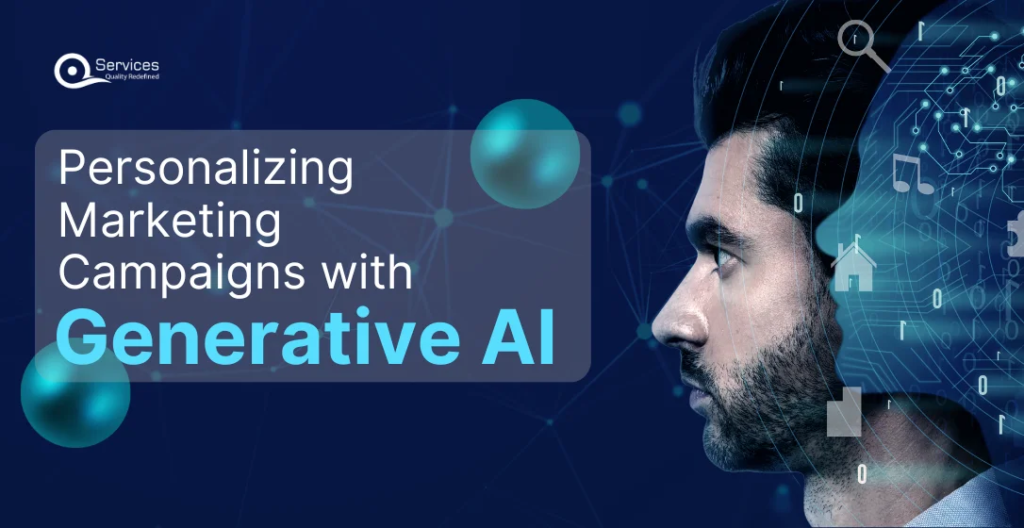In the fast-paced world of digital marketing, businesses are constantly searching for ways to capture attention and drive engagement. AI-Driven Over the past few years, artificial intelligence (AI) has emerged as a game-changer, enabling brands to create highly personalized ad campaigns that resonate with consumers. From tailored social media ads to dynamic website content, AI is transforming how companies connect with their audiences in the United States. However, this technological leap forward has also ignited heated debates about user privacy, as the data required to fuel these campaigns raises questions about transparency and consent. This article explores how AI-driven ad campaigns are reshaping marketing, their benefits for engagement, and the privacy concerns that come with them.

The Rise of AI in Advertising
Artificial intelligence is no longer a futuristic concept—it’s a core component of modern advertising strategies. In 2024, the U.S. digital advertising market was valued at over $200 billion, with a significant portion powered by AI technologies. AI tools analyze vast amounts of data, such as browsing habits, purchase history, and social media interactions, to create hyper-targeted ad campaigns. These campaigns deliver content tailored to individual preferences, making ads feel less like interruptions and more like personalized recommendations.
For example, a consumer searching for running shoes online might later see an ad for a specific brand of sneakers in their size, displayed on their favorite social media platform. This level of personalization is made possible by AI algorithms that process data in real time, allowing brands to deliver relevant content at the right moment. Companies like Google and Meta have heavily invested in AI to enhance their advertising platforms, offering tools that help businesses of all sizes create targeted campaigns.
How AI Boosts Engagement
The primary goal of any ad campaign is to engage the audience, and AI excels at making this happen. By analyzing consumer behavior, AI can predict what types of content will resonate with specific individuals. This leads to higher click-through rates, increased conversions, and stronger brand loyalty. According to a 2023 study by eMarketer, personalized ads driven by AI can increase engagement rates by up to 30% compared to traditional advertising methods.
Take the example of streaming platforms like Netflix or Spotify. These companies use AI to recommend shows or songs based on users’ viewing and listening habits. Similarly, e-commerce giants like Amazon leverage AI to suggest products, driving sales through personalized recommendations. In retail, AI-powered ads can dynamically adjust content based on factors like location, weather, or even the time of day. For instance, a coffee shop chain might promote iced drinks to users in warm climates while advertising hot beverages to those in colder regions.

Small businesses are also reaping the benefits. AI tools like Google Ads’ Smart Bidding and Meta’s Advantage+ campaigns allow companies with limited budgets to compete with larger players. These platforms use machine learning to optimize ad placements, ensuring maximum return on investment. As a result, businesses can reach their target audiences more effectively, fostering stronger connections with consumers.
For more insights on how AI is transforming marketing, check out this Forbes article on AI in advertising.
The Privacy Debate: A Growing Concern
While AI-driven ad campaigns offer undeniable benefits, they also raise significant privacy concerns. To deliver personalized content, AI systems rely on collecting and analyzing vast amounts of user data. This includes everything from search histories and location data to social media activity and even biometric information in some cases. In the U.S., where data privacy laws are less stringent than in regions like the European Union, consumers are increasingly questioning how their information is being used.
The Cambridge Analytica scandal of 2018, where personal data from millions of Facebook users was misused for political advertising, remains a stark reminder of the risks associated with data-driven marketing. More recently, reports have highlighted how AI tools can inadvertently expose sensitive information if not properly managed. For instance, a 2024 investigation by The New York Times revealed that some ad tech companies were collecting data without clear user consent, prompting calls for stronger regulations.
Consumers are becoming more aware of these issues, and many feel uneasy about the “creepy” factor of hyper-targeted ads. A 2023 Pew Research Center survey found that 64% of Americans are concerned about how companies use their data, with many feeling they have little control over their personal information. This has led to growing distrust, with some users opting to use ad blockers or privacy-focused browsers to limit tracking.
To dive deeper into consumer attitudes toward data privacy, read this Pew Research Center report.

Balancing Personalization and Privacy
The challenge for businesses is finding a balance between delivering personalized experiences and respecting user privacy. Some companies are addressing this by adopting transparent data practices. For example, Apple’s App Tracking Transparency (ATT) feature, introduced in 2021, requires apps to ask for user permission before tracking their data across other platforms. This move has forced advertisers to rethink their strategies, focusing on first-party data—information collected directly from customers with their consent.
Other companies are exploring privacy-preserving AI techniques, such as federated learning and differential privacy. Federated learning allows AI models to train on user data without transferring it to centralized servers, reducing the risk of breaches. Differential privacy adds “noise” to datasets, making it harder to identify individual users while still enabling accurate analysis. These innovations aim to maintain the benefits of personalization while addressing privacy concerns.
Legislation is also playing a role. While the U.S. lacks a comprehensive federal data privacy law, states like California and Virginia have introduced regulations such as the California Consumer Privacy Act (CCPA). These laws give consumers more control over their data, including the right to opt out of targeted advertising. As more states consider similar measures, businesses may face stricter requirements for data collection and usage.
For an overview of U.S. data privacy laws, see this analysis by the National Conference of State Legislatures.
The Future of AI-Driven Advertising
As AI technology continues to evolve, its role in advertising is only expected to grow. Emerging trends, such as AI-generated content and voice-activated ads, are already gaining traction. For instance, brands are experimenting with AI to create personalized video ads that adapt to individual viewers in real time. Meanwhile, voice assistants like Amazon’s Alexa are opening new avenues for audio-based advertising.
However, the industry must address privacy concerns to maintain consumer trust. Transparency will be key—businesses that clearly explain how they collect and use data are more likely to build lasting relationships with their audiences. Additionally, advancements in privacy-focused AI could pave the way for a new era of advertising that prioritizes both personalization and user control.
Conclusion
AI-driven ad campaigns are revolutionizing how businesses engage with consumers in the United States. By delivering highly personalized content, these campaigns boost engagement, drive sales, and create meaningful connections between brands and their audiences. However, the reliance on user data has sparked a heated debate about privacy, with consumers demanding greater transparency and control. As the industry navigates this complex landscape, the future of AI in advertising will depend on finding a balance that respects user privacy while harnessing the power of personalization. For businesses and consumers alike, the stakes are high, and the conversation is far from over.
Also read :- Miley Cyrus Shines in 2025: New Music, Family Ties, and Bold Fashion Moves






